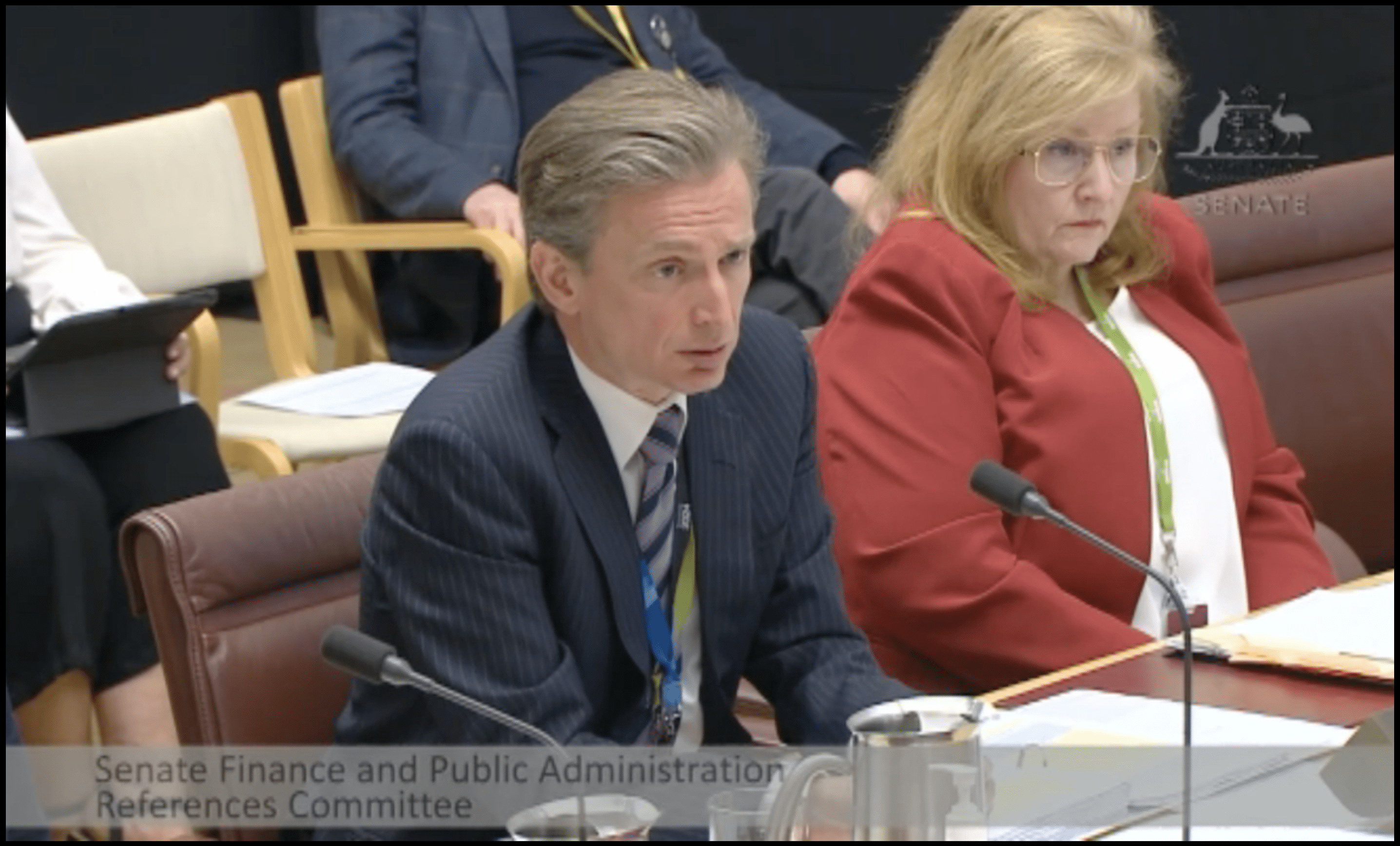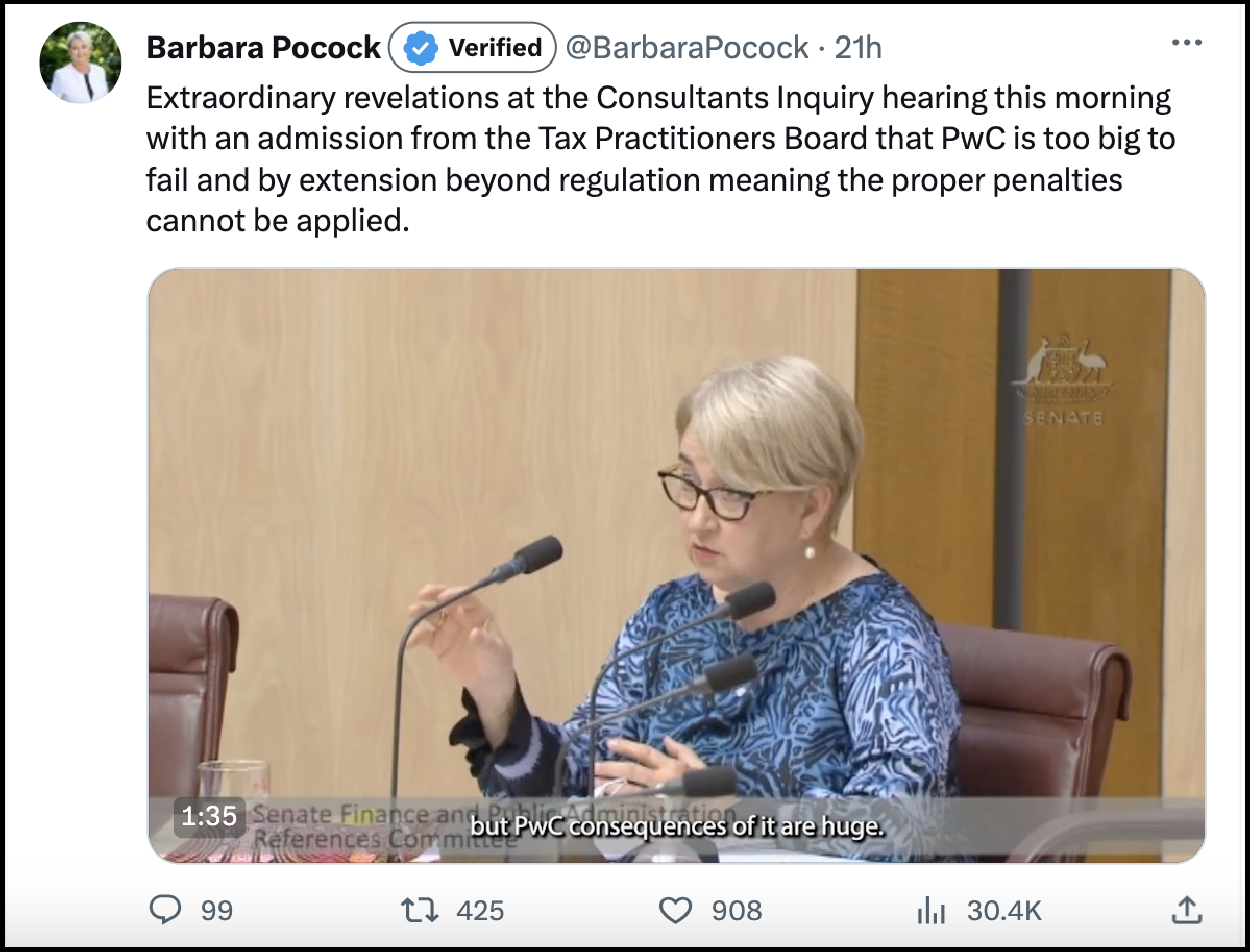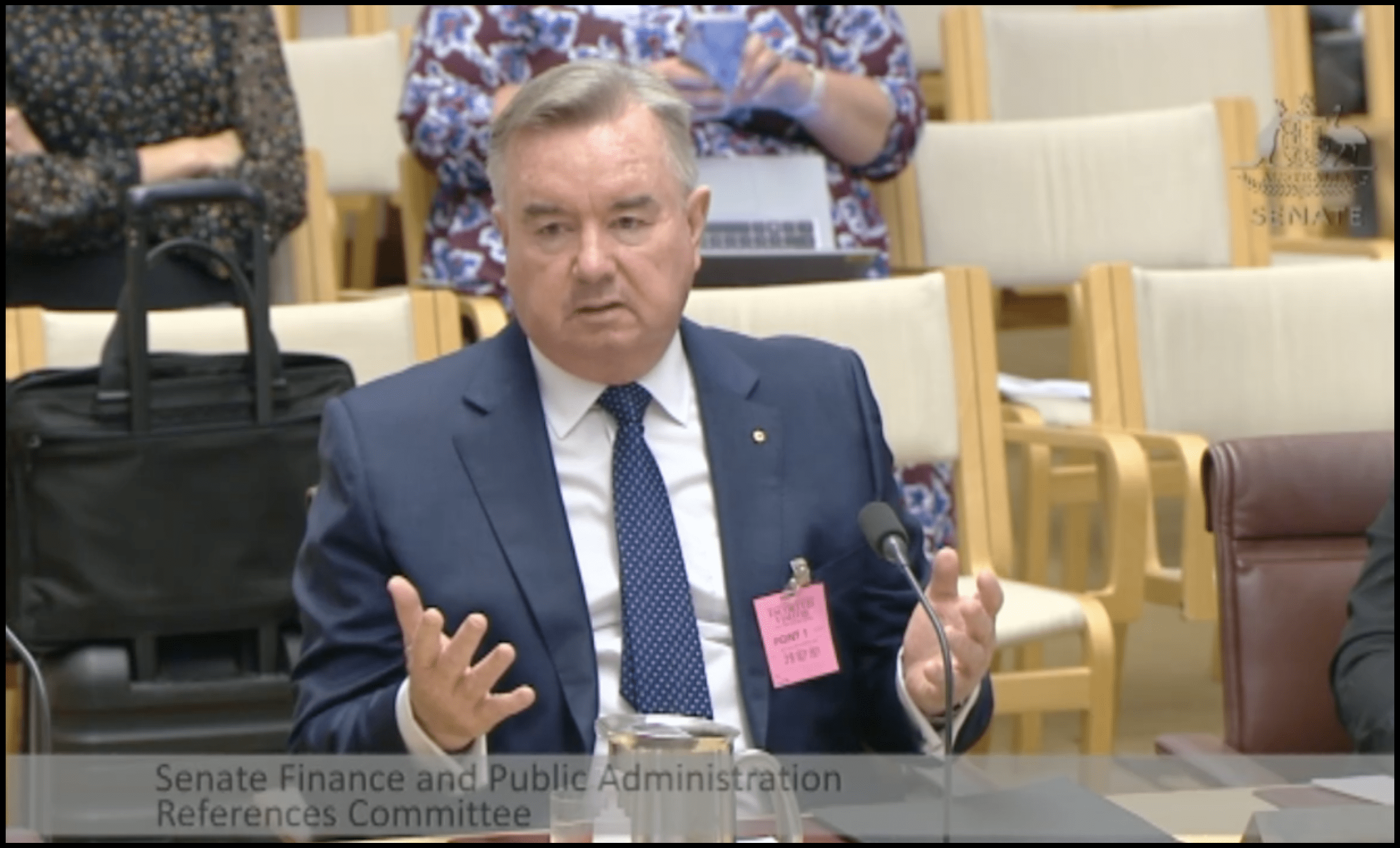The Australian Taxation Office has opened the door to PwC being stripped of its tax agents licence, rejecting suggestions it is “too big to fail”.
ATO Second Assistant Commissioner Jeremy Hirschhorn said while banning PwC Australia from providing tax services could mean the market was temporarily “unsettled”, there were enough other providers to replace it.
“Around the tax market, if one of the large firms left that market there would be a period of…it would be unsettled,” Hirschhorn told the Senate inquiry into consultancies.
“But there are enough providers that I’m sure the market would resettle at a new place”.
“There are enough providers that I’m sure the market would resettle at a new place” — Jeremy Hirschhorn
His statements give the green light — and remove excuses — for the Tax Practitioners Board to revoke PwC’s tax licence over its involvement in one of the biggest corporate scandals in Australian history.
Hirschhorn, tipped as a potential successor to ATO Commissioner Chris Jordan who departs early next year, made the statements to the Senate inquiry last Tuesday.
PwC has been caught selling stolen Australian Government data for millions of dollars to multinationals seeking to avoid Australian tax.
The firm gleaned the information while providing “advice” on new laws to stop multinationals avoiding Australian tax.
Federal agency the Tax Practitioners Board, which is responsible for policing the nation’s 60,000-odd tax practitioners, has been heavily criticised for perceived leniency.
Historically, PwC and the other “Big Four” firms were almost entirely focused on conducting company audits and providing accountancy services, but in recent decades they have also pushed heavily into the far more lucrative areas of “tax structuring” and aggressive tax minimisation.
Greens Senator Deborah Pocock asked Hirschhorn whether PwC was considered “too big to fail”.
(The Big Four, which also include KPMG, Deloitte and Ernst & Young, conduct the annual audits for about 97 per cent of the biggest 200 companies on the Australian Stock Exchange.)
Hirschhorn said that while that was “potentially the case” in “some areas”, such as “statutory audit”, regarding the potential stripping of PwC’s tax license, he was “sure the market would resettle”.
Please DONATE HERE to help keep us afloat!

Not “too big to fail”, says ATO’s Jeremy Hirschhorn. Source: Australian Senate
The statements come as PwC last week unsuccessfully sought to “draw a line” under the scandal, on Wednesday releasing the findings of a “review” it had paid businessman Ziggy Switkowski to conduct.
PwC announced the review after the scandal broke earlier this year — but as revealed by The Klaxon, it refused to disclose the “terms of reference”, or instructions, it had set.
It later emerged that PwC ordered Switkowski to only examine issues from May this year — and so excluding the entire tax affair.
Hirschhorn’s statements put more pressure on the TPB — and its chair Peter de Cure — to revoke PwC’s tax licence over the scandal.
The TPB is responsible for registering and issuing penalties on tax agents, but the ATO is a vastly bigger and more powerful agency.
The TPB can ban individual practitioners for up to five years and strip firms of their tax agent licences, including for “unreasonable care”.
The TPB has penalised just one person — former PwC partner Peter Collins, who it banned from practising for two years — while PwC has received no penalty over the multi-year affair.
The TPB completed its “investigations” into Collins and PwC in December last year.
The scandal became public in January, causing a fierce public backlash, with the TPB later announcing it was conducing further “investigations”.
Hirschhorn’s rejection that PwC was “too big to fail” came less than an hour after the TPB’s de Cure fronted the same inquiry, and appeared to suggest the opposite.
Please DONATE HERE to help keep us afloat!

Pocock responds to de Cure’s claims. Source: Twitter
While there is much overlap, there is a difference between accountants, auditors and tax agents.
Accountants help companies prepare their financial statements, auditors conduct annual reviews of company accounts to test for accuracy, while tax agents deal with the ATO on behalf of companies and other clients.
Tax agents are registered and regulated by government — the TPB — while accountants and auditors are certified via membership to non-government professional bodies.
As TPB chair, de Cure is responsible for tax agents — rather than accountants or auditors.
Yet when asked by Senator Pocock whether PwC was considered “too big to fail”, de Cure only responded in terms of the “audit” functions the firm provides.
Pocock told the inquiry PwC’s actions were “egregious”.
“The consequences of it are huge. Yet only one person, a fall guy in many people’s eyes, has lost his registration, for only two years,” Pocock said.
“Is it the case that if you find matters of unreasonable care within PwC, that PwC will be too big to fail – that implementing a removal of registration for the firm would disrupt the market too much?”
De Cure pointed to claims from the “other big three” firms.
“There’s clearly discussion in the market about, for instance, the public company audit situation,” de Cure said.
“The big three other than PwC would say they wouldn’t be able to absorb the spill over if PwC were to exit that market, whether that means they are too big to fail, I can’t answer that question”.
Please DONATE HERE to help keep us afloat!

Peter de Cure claims other Big four claim to fail. Source: Australian Senate
Pocock said “that is an incredibly important statement you’ve just made”.
“You said the concentration is such with this sector…(it) prevents the regulation and the imposition of an appropriate penalty because the market couldn’t cope?”
De Cure responded: “I was talking about the public company audit practice and that’s what the other big four firms are saying and with the profession at the moment there are serious issues in terms of the war for talent”.
“They are finding it hard to find enough people to work in those practices to do the work that needs to be done.”
“They are finding it hard to find enough people to work in those practices to do the work that needs to be done” — Peter de Cure
Pocock continued: “If serious, egregious, firm-level, ‘unreasonable care’ has been exercised, what penalties (are) available and will you have the…whatever it takes to implement it?”
De Cure responded: “The range of penalties that we have available to us is currently provided in the law, so the maximum penalty, as you say, is to terminate registration and make a five-year exclusion period”.
“The only thing we can do is pursue our investigations, and if there are findings to make, make them, and apply the sanctions that are within our range,” he said.
De Cure did not address the issue of “too big to fail” any further.
The law states that for any “partnership”, such as PwC, “each partner and director” must satisfy a “fit and proper person requirement”.
“If a registered tax agent or BAS agent ceases to meet the fit and proper person requirement, we may decide to terminate their registration,” says the TPB’s website.